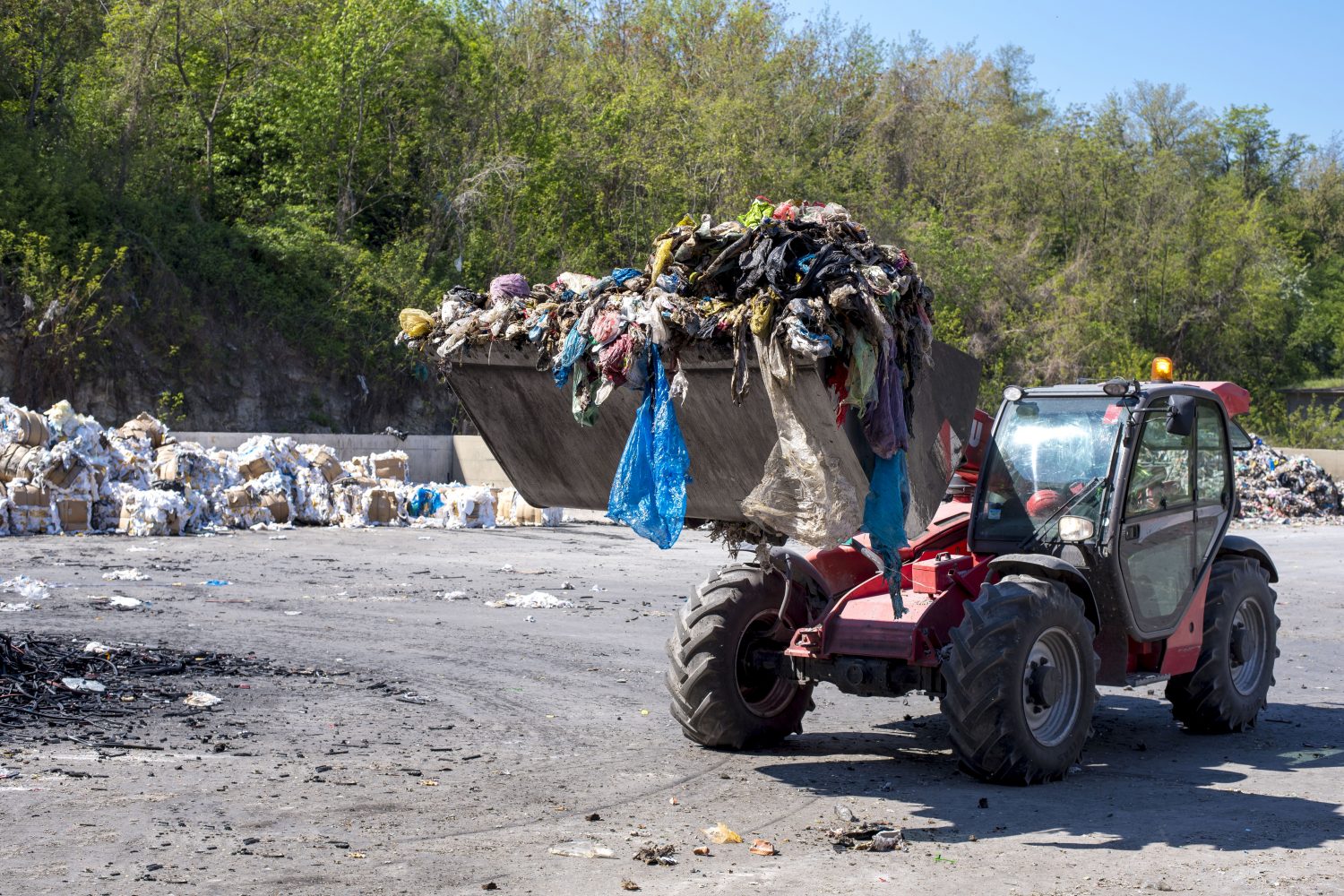Chemical waste management is the process of collecting, storing, transporting, and disposing of toxic or hazardous chemicals that have been used in industrial manufacturing processes. Chemical companies can make it their responsibility to manage their own chemical waste through recycling and reuse. However, many small businesses do not have this luxury, leaving them to deal with the waste themselves. Small businesses should consider chemical waste management as a lifeline when dealing with the disposal of chemical waste because not doing so can be costly and harmful to public health.
What is chemical waste management and why is it important
Chemical waste management is the process of collecting, separating, recycling, and disposing of chemical waste in a safe and environmentally responsible manner. Chemical waste can include products from manufacturing, research, and testing, as well as household cleaning supplies. Proper waste management ensures that toxins are not released into the environment and that the materials are disposed of properly to avoid contaminating water supplies.
Chemical waste can be harmful if not handled properly. It can release harmful chemicals into the air, water, and soil, which can cause health problems for people and animals. Waste management also has an impact on the economy since improper disposal can lead to environmental pollution costs. By properly managing chemical waste, communities can protect themselves from potential environmental disasters and create jobs in the process.
Types of chemical waste management
Chemical waste management is the process of managing chemical waste to prevent environmental contamination and protect human health. Chemical waste can come from a variety of sources, such as factories, laboratories, and homes.
Types of chemical waste
There are four main types of chemical waste: hazardous, non-hazardous, municipal, and industrial. Hazardous chemical waste is the most dangerous type of chemical waste and must be handled with extreme caution. Non-hazardous chemical wastes can either be harmful or benign, but they must still be managed properly to avoid environmental contamination. Municipal chemical waste comes from cities and towns and is generally less hazardous than hazardous chemical waste. Industrial chemical wastes come from factories and other industrial sites and are the most dangerous type of chemical waste because they can contain toxic chemicals that can cause serious health problems if released into the environment.
How to manage chemical waste
The most effective way to manage chemical waste is to prevent it from being produced in the first place. There are several ways to do this: use cleaner production methods, use safer chemicals, recycle materials instead of throwing them away, and store chemicals in containers that will prevent them from leaking. Once chemical wastes have been produced, they must be properly
Benefits of using chemical waste management methods
Chemical waste management is a process that helps to reduce the amount of hazardous and toxic materials that are created each year. By properly managing chemical waste, businesses can protect both the environment and their own employees. In addition, proper waste management can help businesses save money on disposal costs. Here are some of the benefits of using chemical waste management methods:
1. Chemical waste can be dangerous if it is not handled correctly. By properly managing chemical waste, companies can reduce the risk of accidents and injuries.
2. Properly disposing of chemical waste can also help businesses save money on landfill costs. By reducing the amount of chemical waste that needs to be disposed of, companies can significantly cut down on their costs.
3. Properly managing chemical waste also helps protect the environment. By reducing the amount of hazardous and toxic materials that are released into the environment, businesses can protect both the environment and their employees.
Challenges associated with using these chemicals.
Chemical waste management is a challenge because it is difficult to store and dispose of these chemicals safely. These chemicals can also be hazardous if they are released into the environment.
Conclusion
In today’s society, there is an increased demand for products that are safe and environmentally friendly. This has led to the development of new methods of waste management, one of which is chemical waste management. Chemical waste management involves the safe and efficient handling of hazardous and toxic materials. It is important to understand why chemical waste management is so important, not only because it helps protect the environment, but also because it protects human life.
Blog Title: 10 Creative Ways To Stay Organized While Traveling
Chemical waste management is an important process that must be followed when traveling. By following some simple tips, you can stay organized and safe while traveling.
When packing your belongings, make sure to pack all of your chemical waste in a separate container. This will help to keep your belongings safe and clean while you are traveling.
If you are planning on visiting any tourist sites, make sure to bring along a container for chemical waste. This will allow you to avoid having to Dispose of Chemical Waste In A Safe And Reliable Manner.
By following these simple tips, you can stay safe and organized while traveling.
Blog Description: Ten creative ways to stay organized while traveling
Chemical waste management is an important issue because it is responsible for the release of hazardous materials into the environment. In fact, chemical waste can be classified as a type of environmental pollution. Chemical waste can come from a variety of sources, such as factories, hospitals, and laboratories.
Here are ten creative ways to stay organized while traveling:
1. Use a packing list to track what you pack and don’t forget the items you need for your trip’s emergencies.
2. Utilize a travel journal to write down your thoughts and experiences during your trip.
3. Store all of your clothes in a large suitcase so you don’t have to search through them when you get to your destination.
4. Label each container with its contents so you can easily identify what needs to be disposed of when you arrive at your destination.
5. Arrange all of your electronics in one place before packing them away so they don’t take up extra space in your suitcase.
6. Create a photo timeline of your trip so you can revisit key moments without having to search for photos online.
7. Make copies of important documents, such as your passport and visa, in case you
Blog Outline:
-What is chemical waste management and why is it important?
-Chemical waste management overview
-The seven types of chemical waste and their disposal methods
-How to reduce chemical waste and pollutants
-What are the benefits of chemical waste management?
1. Include a packing list in your phone case
There is no shortage of reasons why you should be environmentally conscious when it comes to your personal care products. But did you know that chemicals in your everyday products can also have an impact on the environment?
Chemical waste management is one important way to help reduce the environmental impact of your lifestyle. When chemical waste is handled responsibly, it can help prevent harmful emissions from reaching our air and water.
Here are some tips for responsible chemical waste management:
Keep a packing list of all the products you use in your home and office. This will help you remember to properly dispose of all packaging and chemicals when you dispose of your product.
Only use products that are safe and environmentally friendly. Make sure to read the labels before using any product, and find products that are made with sustainable materials.
Keep all chemical waste separate from other trash. Learn about local recycling options to help reduce the amount of waste that ends up in landfills.
2. Create a packing list for each season
Chemical waste management is an important process that needs to be completed each season to avoid any potential environmental problems. Here are some tips to help you create a packing list for each season:
Fall: Pack a bag of clothes and other necessary items to pack for your trip home.
Winter: Include items for cold weather, like coats, hats, and gloves.
Spring: Include items for outdoor activities like hiking and camping.
Summer: Pack items for the pool or beach, like towels and swimsuits.
Fall: Include items to clean up after yourself, like buckets and sponges.
3. Take an
Chemical waste management is an important service that businesses and homeowners use to dispose of hazardous chemicals safely.
Chemical waste management is a process that helps businesses and homeowners dispose of hazardous chemicals safely. This process involves using safe disposal methods, such as incineration or landfilling.
The main goal of chemical waste management is to protect the environment and the people who live near where the chemicals are stored. These methods ensure that the chemicals are disposed of in a safe and environmentally friendly way.
Chemical waste management is an important service that businesses and homeowners use to dispose of hazardous chemicals safely. This process involves using safe disposal methods, such as incineration or landfilling. The main goal of chemical waste management is to protect the environment and the people who live near where the chemicals are stored. These methods ensure that the chemicals are disposed of in a safe and environmentally friendly way.

